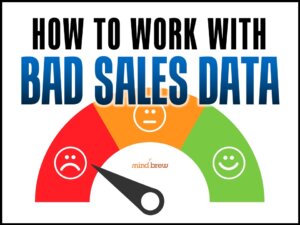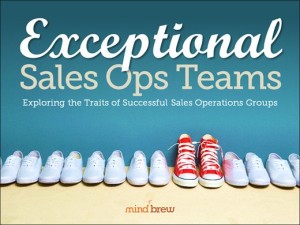Just about everyone in a sales operation is busy. And when any of us are busy, it’s just so easy for us to get bogged down in the tactical things we have to do today, this week, or this month. And no matter how fast we cross things off, our “to do” list never seems to get any smaller.
Nevertheless, it’s important not to lose sight of the bigger picture.
Here are three things you could be doing to have a more significant impact on your company’s performance in the marketplace (as well as links to SellingBrew Playbook resources that explain how to accomplish them):
Big Idea #1: Identify customers that are defecting before you lose them.
Compared with B2C firms, B2B companies tend to have much smaller addressable markets and customers with much greater lifetime values. That means losing just one customer can be a really big problem. But customer defections rarely happen all at once in B2B environments and there are usually early warning signs that something is amiss. And fortunately, when you spot a potential defection early in the process, you have an 80 to 90 percent chance of winning them back.
Identifying Three Types of Customer Defection
Big Idea #2: Maximize the value you’re getting from existing customers.
Many B2B sales operations are so focused on acquiring the next collection of new customers that they’re failing to get everything they really could from their existing customer base. While they might talk a good game about their “land and expand” strategy, in practice the “expand” part just isn’t happening. And as a result, they’re overlooking a major source of incremental sales opportunities that have inherently better access, higher close rates, shorter sales cycles, and fatter margins.
Generating More Sales from Existing Customers
Big Idea #3: Shift your customer mix to more profitable customers.
If your company is simply taking customers as they come, you’re probably not generating as much revenue and profit as you could be. In any business, there are certain types of customers that are inherently more valuable than others. But too few B2B sales operations are making the effort to study the numbers, identify the characteristics of their most valuable customers, and take proactive steps to pursue prospects that look just like them.
Shift Your Customer Mix to Improve Performance
This sort of big-picture thinking is not only good for your company. In most cases, it can also be very good for your career. If you have larger ambitions, focusing on bigger ideas like these are a great way to demonstrate that you understand the strategic needs of the business just as well as you understand the tactical demands of your day-to-day job.














